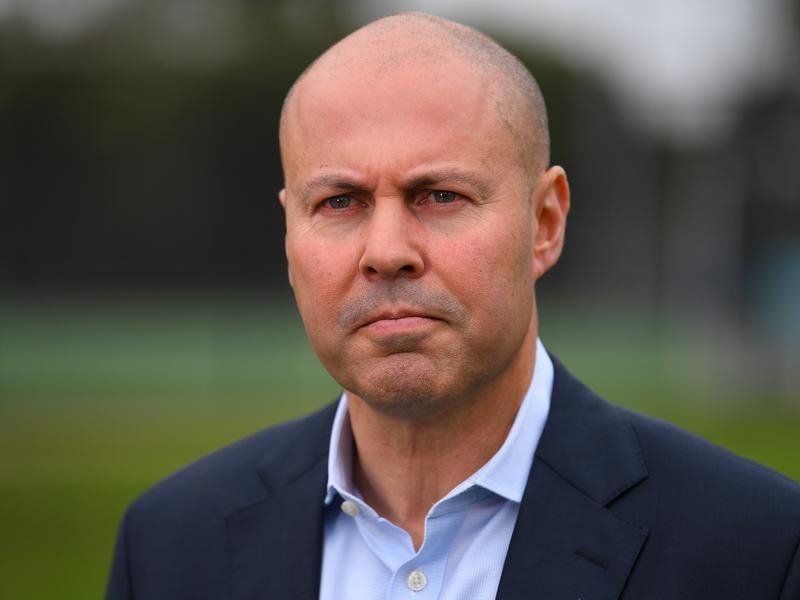AARON PATRICK: Albanese’s right-hand man, public servant Steven Kennedy, could change Australia
AARON PATRICK: Steven Kennedy will next week become the Prime Minister’s top adviser. He could use his expertise to help fix the two biggest problems facing the country.

Few Australians have heard of Steven Kennedy, but he may be one of the most important figures to emerge from the public service this century.
Mr Kennedy was this week appointed secretary of the Department of Prime Minister and Cabinet, making him the chief adviser to Anthony Albanese. If there is anyone who can convince the low-risk Prime Minister to undertake difficult policy reform, it may be the psychiatric nurse who became an economist.
Mr Kennedy led the Treasury Department during the pandemic. During that difficult time he essentially ran Australia with Prime Minister Scott Morrison and Treasurer Josh Frydenberg.
Sign up to The Nightly's newsletters.
Get the first look at the digital newspaper, curated daily stories and breaking headlines delivered to your inbox.
By continuing you agree to our Terms and Privacy Policy.Through endless meetings with the intense treasurer, Mr Frydenberg, Mr Kennedy was calm, thoughtful and, when necessary, direct, according to people who worked with both men. Some Sundays, with most of the country confined to their homes, Mr Kennedy would spend six hours on video calls with Mr Frydenberg, never showing annoyance at losing his weekends.
“He always seems to me entirely unflappable,” said Jeff Borland, a economics professor at Melbourne University.
Rapport at the top
Even though he had a rapport with Mr Morrison, helped by the prime minister’s experience as a treasurer, Mr Kennedy was careful not to offer advice to him unless Mr Frydenberg was present, according to a source.
Mr Kennedy was a key architect of JobKeeper, the wage subsidy credited with avoiding mass unemployment. Working out how to get payments to millions of Australians was a complex administrative task that required individual superannuation records to be matched with business records held by the tax office. Mr Kennedy and other officials sorted out the problem in four days.
“He showed enormous leadership and an ability to focus on the getting the public service to do what the country needed,” said Adam Clark, an adviser to Mr Frydenberg when he was treasurer. “We owe him a lot.”
Mr Kennedy’s friendly style was matched by a willingness to deliver advice politicians did not like. He opposed Mr Frydenberg’s decision to guarantee 50 per cent of loans to small and medium-sized businesses, arguing the scheme should be a more generous 80 per cent.
Overruled, Mr Kennedy did not complain or try to undermine the decision, demonstrating a professionalism that helps explain how he has worked for both main parties at senior levels.

Labor man?
When the Labor Party won the 2022 election, Mr Kennedy was kept on by a Government that wanted to spend more on social services and the public service. Some Liberals believed Mr Kennedy, having worked in government his whole career, was happier with extra regulation and bigger government.
“I told him we have the most-regulated labour market in the world,” one ex-MP said. “He said: ‘You don’t understand the French or German labour markets’.”
At the start of this year’s election campaign Coalition Treasury spokesman Angus Taylor implied Mr Kennedy might be fired if the Government lost the election.
A Government spokesman said Mr Kennedy was not available for an interview.
Two problems
Labor’s easy victory, helped by a perception the economy had turned, seemed to strengthen his position. On Tuesday his appointment was made public. He starts in the new position Monday, and will have direct responsibility for about 1300 public servants and a budget of about $400 million.
Mr Kennedy’s influence, though, will come from his access to the prime minister, who faces two big problems mostly ignored in the government’s first term: an intractable budget deficit that has driven annual interest costs to $28 billion, and an economy struggling to get more efficient.
Both make Australia poorer than it would otherwise be. As an economist, Mr Kennedy could use his expertise to convince Mr Albanese to implement policies to fix the problems -- a sales job that may be the most delicate in government.

